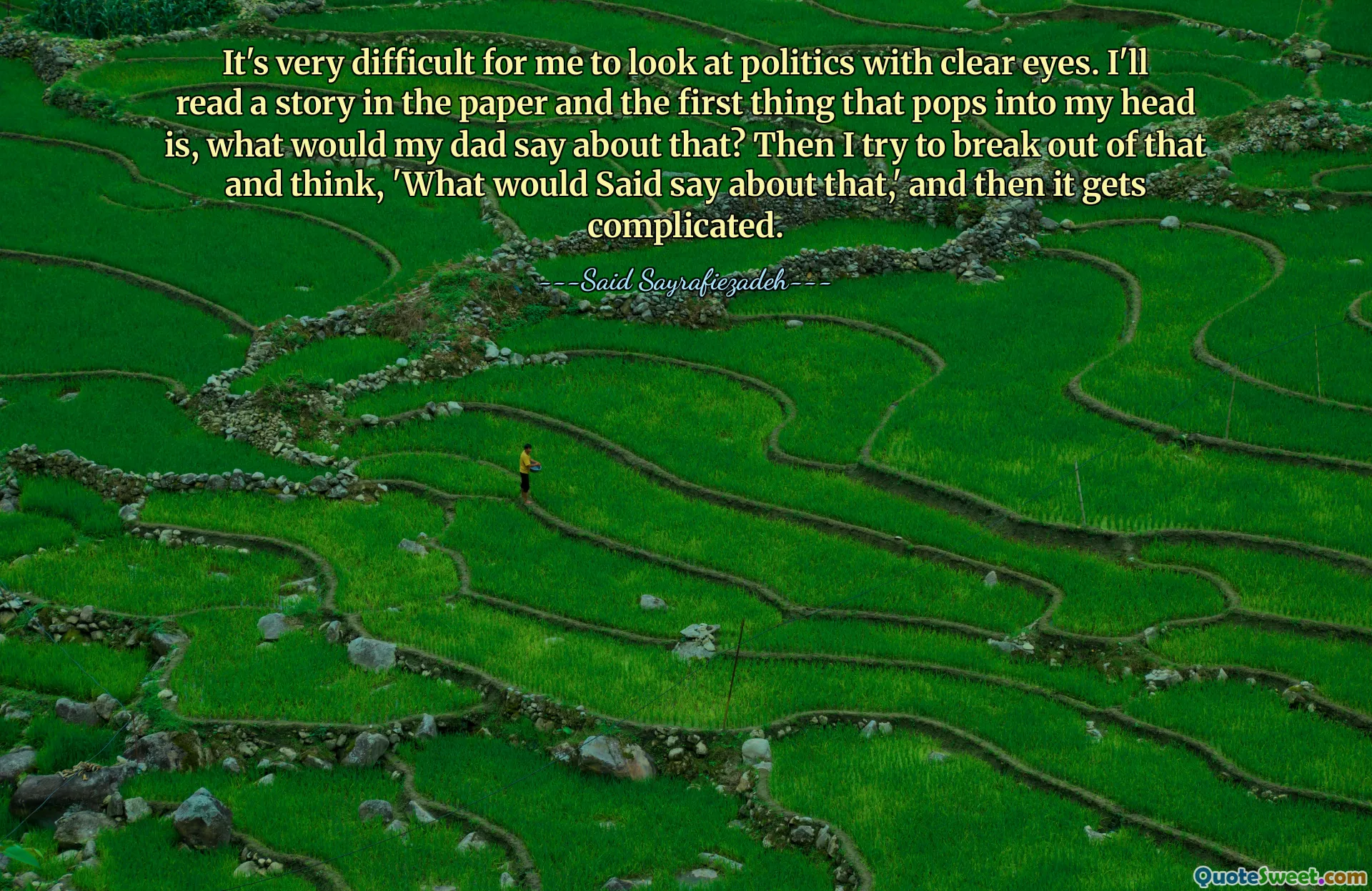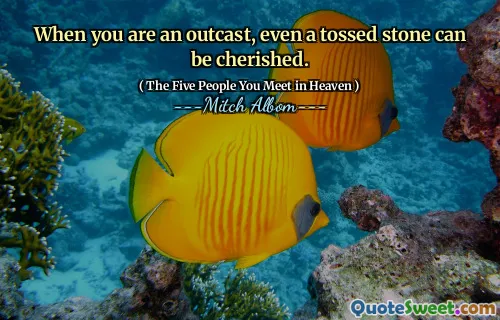
It's very difficult for me to look at politics with clear eyes. I'll read a story in the paper and the first thing that pops into my head is, what would my dad say about that? Then I try to break out of that and think, 'What would Said say about that,' and then it gets complicated.
📖 Said Sayrafiezadeh
This quote poignantly captures the complex interplay between personal identity, familial influence, and political perception. The speaker admits that their view of politics is heavily tinted by the perspectives of those closest to him—initially, his father, whose opinions and worldview shape his understanding of political matters. This almost instinctive reflex illustrates how deeply familial relationships influence political cognition, often serving as a lens through which we interpret societal events. When he attempts to shift from these personal reference points to consider what Said would think—presumably referring to someone like Edward Said or a figure with critical awareness—it highlights the struggle to develop an independent and possibly more nuanced understanding of complex issues. The phrase 'and then it gets complicated' underscores the layered nature of this process, emphasizing that disentangling personal emotions and associations from objective analysis is challenging. This struggle to see politics with 'clear eyes' resonates with a broader intellectual challenge: reconciling personal experience with an impartial view. It prompts reflection on how our upbringing, cultural backgrounds, and personal relationships meticulously shape our perceptions and judgments. The quote invites us to consider whether it's possible or even desirable to detach entirely from these influences or whether understanding our biases is part of a deeper engagement with political reality. Ultimately, it underscores the importance of self-awareness in navigating political discourse, acknowledging that our initial reactions are often filtered through personal lenses that complicate our quest for truth and clarity. This ongoing internal dialogue exemplifies the universal challenge of forming honest, thoughtful opinions in a complex world.






